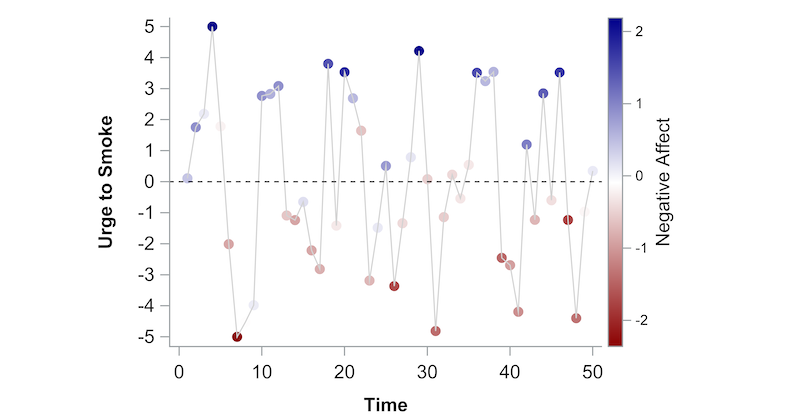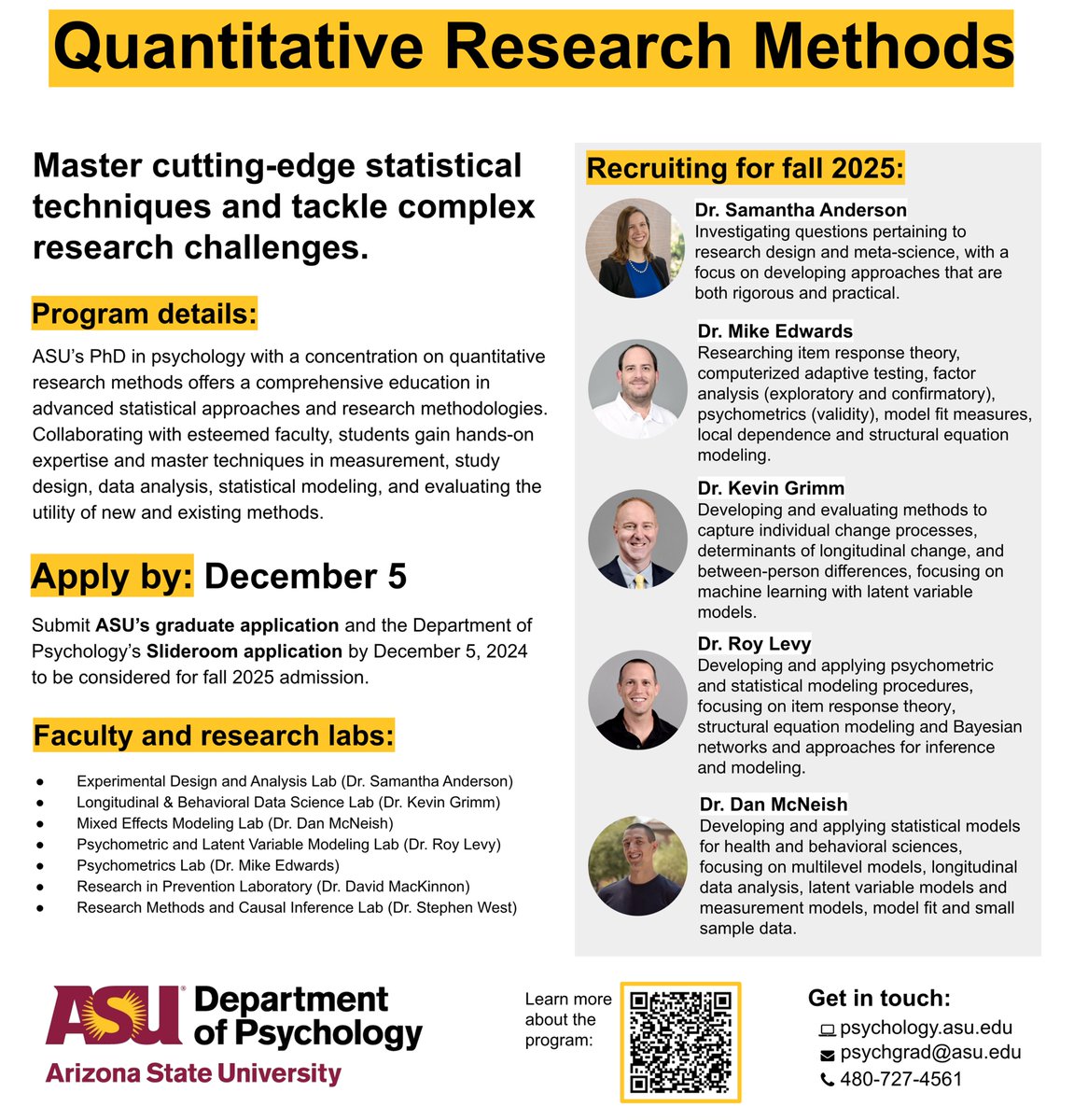
Dan McNeish
@dmcneish18
Followers
2K
Following
2K
Statuses
662
Quant Psyc professor at Arizona State. Into clustered data, latent variables, psychometrics, intensive longitudinal data, and growth modeling.
Tempe, AZ, USA
Joined February 2017
This paper on intensive longitudinal reliability by @SeCastroAl & @bringmann_laura is one of the best I've read in a while -- the review so was thorough, the code was fantastic, and it answered every question I had about IL reliability. Def check it out!
0
14
45
Next week, I'm teaching a 3-day workshop on DSEM for intensive longitudinal data using Mplus and registration is still open! More information about the topics and registration can be found here,
Join @dmcneish18 for Dynamic #StructuralEquationModeling, Feb. 5-7! Explore DSEM, a cutting-edge framework that utilizes intensive longitudinal data to gain detailed insights into dynamic processes and variability within and between subjects.
0
10
38
@JkayFlake We ended up making it optional this year because our applicant pool has shrunk considerably and people explicitly told us they did not apply to our program because we were the only one on their listed that required the GRE and they didn't want to take it just for ASU /3
1
0
6
@JkayFlake Plus, about half of our graduates go on to work in industry positions emphasizing assessment and measurement, so it seemed contradictory to say assessments don't matter in admissions but then teach admitted students how make assessments for a living /2
0
0
8
@JkayFlake It was required at ASU until this year because we thought it was a self-own to make it optional since standardized assessment is one of quant psyc/psychometric's most notable contributions and it was basically the only part of the application with documented validity evidence /1
3
0
9
@n0bledeer @MelissaGWolf Not currently working on anything for ESEM (measurement invariance is the next area where we are trying to extend the idea). I don't know a ton about ESEM, but I think it would be doable (but maybe only with the direct discrepancy version of DFI)
0
0
0
@QuantPsychiatry @MelissaGWolf Wow, this made my day and is such high praise! Really appreciate you trying to convince people to switch over to something a little more rigorous than what is commonly used.
0
0
1
RT @LauraMStapleton: My favorite workshop to teach! Come join me and learn how to (correctly) analyze the data from programs like ECLSK, T…
0
8
0
@SolomonKurz I don't work much in that area, but for what it's worth, the one that I've heard recommended is Noel Card's book
0
0
3
@JonathanDowlin @RoyLevy11 If I understand correctly, SAM uses corrections and our Bayes approach tries to model things directly. So basically different approaches to tackle the same issue (each with their own pros and cons) p. 13 of the journal version talks compares methods from different frameworks /2
0
0
1
@JonathanDowlin @RoyLevy11 I don't think it could be modified directly for frequentist settings because our method involves passing posterior distributions across stages. Yves Rosseel's work on Structural after Measurement (SAM) models might be the closest frequentist idea /1
1
0
2



